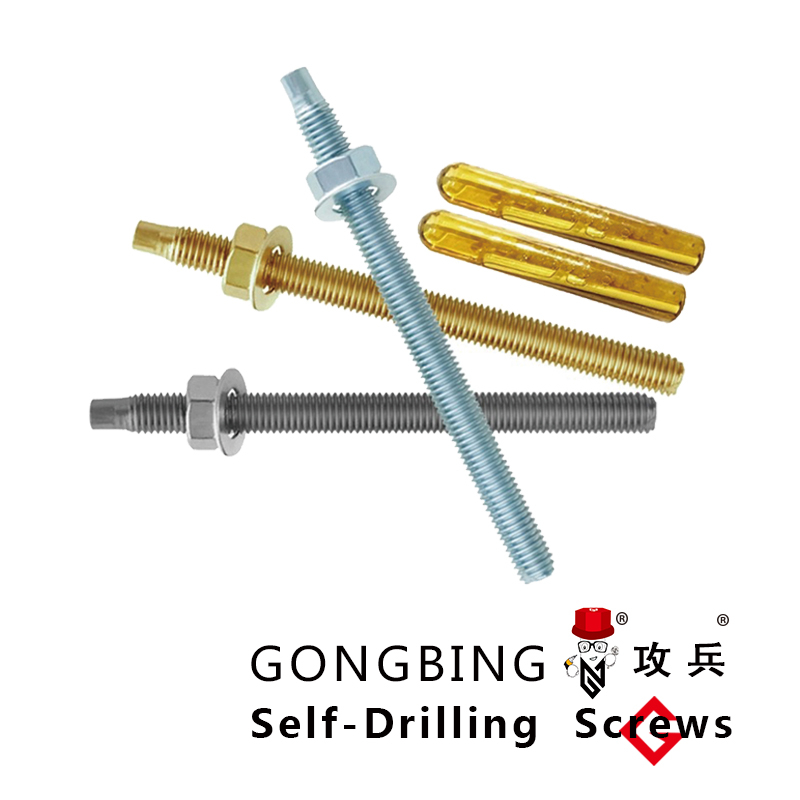foundation bolt j type
Understanding J-Type Foundation Bolts Essential Components for Structural Integrity
Foundation bolts, including the widely used J-type bolts, play a crucial role in anchoring structures to their foundation. These bolts are essential components in the construction industry, ensuring the stability and safety of various structures, from skyscrapers to bridges. Understanding the functionalities and applications of J-type foundation bolts can provide insights into their significance in construction engineering.
What are J-Type Foundation Bolts?
J-type foundation bolts are characterized by their distinct J-shaped configuration, which features a curved end that resembles the letter J. This design allows for an enhanced grip within the concrete, offering superior anchoring capabilities. Typically made from high-strength steel, these bolts are designed to endure significant loads and resist corrosion, ensuring longevity and reliability in various environmental conditions.
Applications in Construction
J-type foundation bolts are commonly used in securing steel columns, machinery, and other structural components to concrete foundations. Their unique shape allows them to be embedded deep within concrete during the pouring process, improving load distribution and preventing any lateral movement that could compromise structural integrity. These bolts are particularly favored in seismic zones, where flexibility and strength are paramount in withstanding earthquakes.
Advantages of J-Type Bolts
1. Enhanced Stability The J-shaped curve increases the surface area in contact with the concrete, providing superior anchoring strength compared to traditional straight bolts. This feature makes them particularly useful for heavy structures.
foundation bolt j type

2. Ease of Installation The design of J-type bolts allows for straightforward installation. They can be placed before the concrete is poured, eliminating the need for extensive post-installation adjustments.
3. Versatility J-type foundation bolts can be utilized in various applications, including residential, commercial, and industrial construction. Whether it's anchoring equipment or securing frameworks, their versatility makes them a preferred choice among engineers.
4. Corrosion Resistance Many J-type bolts are treated with special coatings to enhance their resistance to rust and corrosion. This feature is vital for structures exposed to harsh environmental conditions, ensuring the longevity of the anchoring system.
Considerations for Use
While J-type foundation bolts offer numerous benefits, it is essential to consider specific factors during their installation and use. Proper placement and embedding depth are critical to maximizing their anchoring capabilities. Additionally, regular inspections and monitoring can help identify any potential issues early, ensuring structural safety over time.
Conclusion
In summary, J-type foundation bolts are vital components in the realm of construction, providing critical support and stability to various structures. Their unique design, coupled with the advantages they offer, makes them an indispensable choice in modern engineering. A thorough understanding of their applications, benefits, and installation practices is essential for engineers and construction professionals striving to ensure the safety and longevity of their projects. Investing in quality J-type foundation bolts can significantly enhance the durability and structural integrity of any construction endeavor, making them a cornerstone of safe building practices.
-
Weatherproof Plastic Expansion Anchors for OutdoorNewsJun.06,2025
-
Sustainability in the Supply Chain: Eco-Friendly TEK Screws ProductionNewsJun.06,2025
-
Load-Bearing Capacity of External Insulation FixingsNewsJun.06,2025
-
Double Head Bolts: Enhancing Efficiency in Industrial MachineryNewsJun.06,2025
-
Corrosion Resistance in Chipboard Screws: Coatings for Wholesale DurabilityNewsJun.06,2025
-
Butterfly Toggle Bolts : Enhancing Structural ResilienceNewsJun.06,2025
